There is Something Fundamentally Wrong with Congress
There is a fundamental problem with the feedback loop in American politics.
As I have noted on multiple occasions, one of the most fundamental jobs of a national legislature is setting the budget. The establishment of basic spending parameters for a given year, while complex (especially for a country the size of the United States) is not rocket science. This is doublytrue when we consider, for good or for ill, that a substantial amount of the budget is effectively pre-set (i.e., entitlements* and interest on the debt). The latest half-measures (and calling them “half-measures” is a kindness) regarding avoiding a showdown over the payroll tax cut (which still needs to pass the House), not to mention avoiding yet another possible government shutdown over lack of spending authority simply underscores this situation all the more. Indeed, as of this writing the measures have not passed both chambers, so they are not yet settled.
While one might point to partisan bickering as the main issue (or, worse, just assuming a “lack of leadership”) the fact of the matter is one would expect there to be partisan bickering in a legislature. It is less that I expect everyone to get along and “do the people’s business” as much as I expect that governing institutions be designed in a way that they produce the results for which they were designed. In the case of the Congress, there is no doubt that they have been charged, both in a theoretical and a practical, constitutional sense, with power and responsibility over the budget.
So, the question becomes: what are the incentives put in place by the current institutional structures and, further, are there any factors within the functioning of Congress that impede adequate outcomes?**
This, of course, suggests a rather complex analysis (as multiple variables are in play). Still, let me focus on one issue: the electoral process. As all of this leads me to a basic conclusion I have discussed before, and it is twofold: there is fundamentally a problem with the feedback loop and, moreover, where the feedback loop works, it is supporting dysfunction.
Let’s consider the following:
1. Congress is clearly not performing a basic function (the budget) and we further know that we have some serious issues that require addressing in terms of long-term issues of fiscal stability (both on the taxing and spending sides) and especially entitlement reform. The prospects for seriousness any time soon on these issues appears grim, to be honest.
2. The public, in general, is quite unhappy with the Congress. Indeed, public approval of Congress is historically low. Via Real Clear Politics:
3. And yet, we keep re-electing most members. As Doug Mataconis noted the other day, the re-election rates for both chambers, especially the House, are phenomenally high.
First, the House:
Second, the Senate:
There is a clear disconnect between the public’s view of Congress and the results of elections. Yes, part of this is the phenomenon of “its pork when other members of Congress do it, but it is vital activity when my representative does it.” But, I would argue that there is a more substantial disconnect here than that.
The bottom line is that the Congress doesn’t do a very good job of representing the population. This is a problem if one values democratic governance.*** I am not sure how anyone can objectively look at the approval numbers, and then the re-election numbers, and not see a disconnect. Also, it is worth nothing that while Congress is especially unpopular at the moment, it is generally the least popular institution of the federal government, historically speaking.
All of this leads to the conclusion that a major problem within the US at the moment is an antiquated electoral system, i.e., the uses of plurality winners in single member districts. One of the fundamental problems of a single member district system is that it has a tendency to limit competition (by definition there is an incentive to form large, catch-all parties). Moreover, when districts are drawn by partisan entities (e.g., state legislatures) you end up in a situation where the parties pick their voters. This is an unhealthy situation for democratic governance, as the way the feedback loop is supposed to work is that voters pick the parties by selecting representatives in truly competitive elections. Note, of course, this latter point only applies to the House, as Senate districts are state boundaries (and note while there is still remarkably high re-election rates in the Senate, the numbers are a bit more volatile over time).
This situation is exacerbated in the US by the usage of primary elections. Consider: if one lives in, say, a safe Republican district then the real competition in in the primary election, not the general election. As a result, the member of Congress is really selected in the primary. Primary elections are notoriously low-turnout affairs and also ones in which ideologically driven voters are more likely to participate and much more likely to sway outcomes than in the general election. The combination of the safe district and the primary process for nomination leads to members who are likely not as representative of their districts as one might think.
Consider a very real political dynamic at the moment: there is a severe anti-tax strain in the Republican Party at the moment (something that even a very conservative Senator, Tom Coburn, has noted) that makes legitimate debate and compromise more difficult. Now, not only is this often a factor of principle (which I can respect, even if I think it misguided) it is also a function of electoral politics: many GOP members know that they will face a primary challenge if they fail to follow through on a hardcore anti-tax agenda (ask, for example, Bob Bennett of Utah). The bottom line is this: many of these members of Congress are from safe districts, but they are not safe at the primary level. A primary challenge can empower the most conservative elements of the party to nominate a candidate who is not representative of the district (and may not even be representatives of the Republicans in that district, given the turnout issues inherent in primaries) but said candidate will be a shoe-in for election because of the districting issue noted above. This is not a healthy pattern for a system predicated on the notion of representation.****
Is this the only issue at the moment with the US Congress? No, but one blog post at a time, I guess. There is also, for example, the fact that the public itself isn’t sure what it wants, not to mention the problems of the filibuster, as well as the fact that federalism, bicameralism, and separation of powers all create their own difficulties for efficient policy-making.*****
Regardless: I take the time to write this because first and foremost I think it identifies a real issue that needs scrutiny within the US public. I am fully aware that the default position for most Americans is a combination of assumptions that the current system is fine (after all, we’ve always done it that way, the Founders!, etc.) and a total lack of understanding that there are a myriad of ways to elect legislatures. At a minimum, I would advocate for greater awareness of the issue in the hopes of generating debate. I will allow, by the way, that no set of electoral rules is perfect, but some clearly work better than others. Nonetheless, just because something isn’t a panacea doesn’t mean it isn’t worthwhile.
To put it more succinctly: I would like to see a national discussion to emerge on the topic of electoral reform. And I think that the disconnect between congressional approval/performance and the re-election rates of its members demonstrates that such a discussion is not just something that theoreticians should be interested in, but rather is of serious practical significance.
*And yes, it is feasibly possible to redefine entitlements on a yearly basis, but the degree which it is a good idea is a whole other issue. The bottom line is this on, say, Medicare: once you have defined the benefit (i.e., in this case certain medical care for all people over a certain age) then the only real way to change it is to either a) change the nature of the benefit or alter the age of eligibility. This really isn’t a practical process on an annual basis.
**I would define “adequate” in this case not to mean any specific budget outcome but, rather, simply a functional budget, i.e., the basic fulfillment of their responsibilities.
***And I am quite aware that not everyone does, in fact, value democratic governance because they prefer the morass of the moment over improved representativeness.
****After all, its even in the name of one of the chambers, the House of Representatives. And, as we may all recall, part of the reason for seeking independence from the UK was, you know, taxation without representation.
*****And I do recognize that built in inefficiencies can have advantages—but it must also be acknowledged that they create disadvantages as well.
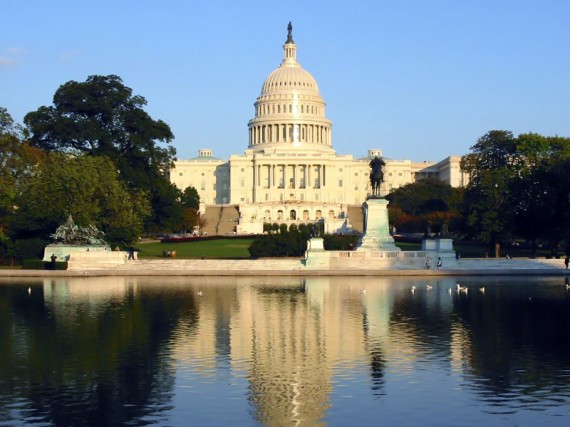

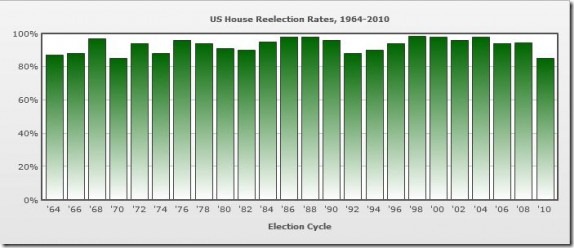
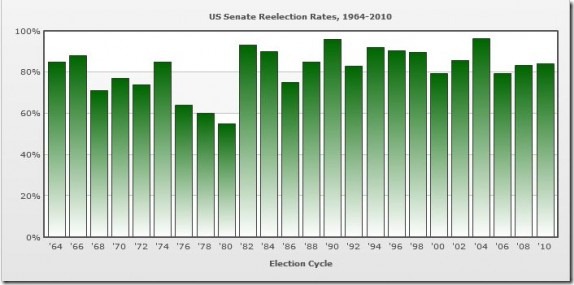


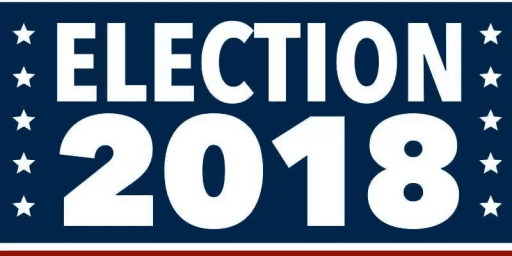

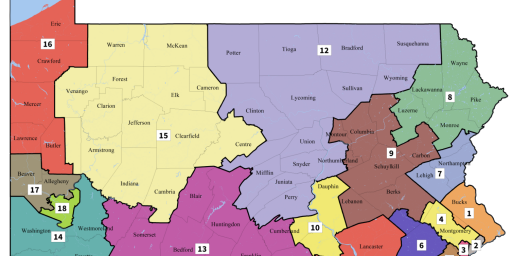
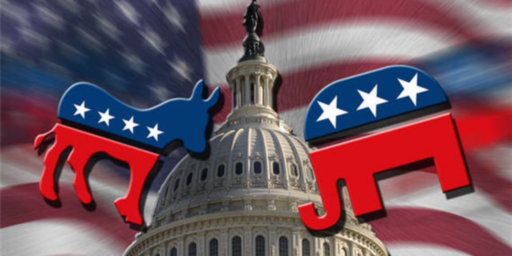
Excellent post.
The question that I immediately wonder is how to incentivise that discussion.
The reason that it seems to me to be a crucial issue is because it seems to me that there are far more incentives to prevent that conversation from taking place. Its clear that such a conversation would be dangerous to the powers-that-be.
To some degree this seems to factor into the problem of OWS,and to a lesser degree the tea party. The issue is that the “common citizen” realizes that there is something wrong, but cannot find the forum to discuss, let alone begin to reshape the broader system.
(btw. perhaps the greatest illusion of talk radio is that it provides the sort of forum that you seem to be pining for. I can’t help but think about Walter Benjamin’s suggestion that the best way to retain power is to provide the people with a chance to express themselves without the infrastructure to act upon that expression).
Papers, please.
Your credit score can now be used to shut you out of housing, jobs, and insurance, none of which have anything to do with lending money. The punishment for not having your papers in order in this instance is to give ever more money to the banks over time. That is the only way your score goes up.
Your good name used to be enough to vote. We did away with poll-taxes, but now the penalty for not having your papers in order is not being able to vote because you cannot afford the costs of assembling the required papers.
If the recession caused you to fall not just behind your debts, but completely unable to pay, even to the extent you cannot afford bankruptcy, you can be sued, and dragged into court. Should you not appear for any reason, or defy in any way what is said about you when you do, you can be arrested. The penalties for not having your Papers, Please is debtor’s prison. Debt, briefly, was a civil matter.
All electronic activity is recorded by the government without warrant. The sites you surf, your location on earth, each keystroke entered into your smart phone, are at all times known. Security cameras fill in what minute blanks remain.
Should the President declare you “belligerent,” you can be locked away forever under terrorist laws. No amount of having your papers in order can save you from THIS.
This is America, 2011. Should we start worrying when your papers must be in order to buy food? Or to speak? Or move freely?
“Ve know vere you liff…” used to be a joke. Sadly, we are well out of our Hogan’s Heros era. OBL sings praises to Allah at his brilliant success in undoing America.
Proportional voting based systems can actually lead to more undemocratic legislatures. Look at Israel where a small number of radical parties have tremendous power due to the way the Knesset is currently divided. In any kind of plurality based systems most of those radical legislatures would not have been elected.
In WA start we have started a top 2 primary system. The parties HATE it and have fought tooth and nail to stop it but so far it is going on. In a top 2 primary system, all candidates from all parties are in the same primary. Democrats, Repubs, Socialist, Libertarians, all of them in one big mix. The top 2 vote getters, regardless of party, then go on to face each other in the general election.
In theory you can have 2 repubs face each other in the general election or 2 Dems. It is designed to elect more moderate candidates (which is why the parties hate it, they want to nominate the most extreme candidates they can and force the voters to choose between them).
It seems to me that the top 2 primary is the least costly way to get around gerry-mandering and party activists. You will have to do it by voter initiative and you will have to fight it out in court afterwards because the party hacks HATE IT HATE IT HATE IT.
Which to me totally validates that top 2 primary is a very good thing.
I’ve said the same thing time and time again: the plurality vote system does not work in our massive country. It just doesn’t. We need to switch to an approval voting system if we’re going to fix it. And then, on top of that, we need to establish Congressional term limits, have computers drawn up our Congressional districts, and if we have any appetite left over, return the election of Senators to the state legislatures, where they belong.
There have been some ideas bandied about for proportional representation in the House, and while I generally like the concept, I’m not sure how that would work out. Maybe if a couple of states tried it, we could see.
@Jib: Of course, without getting into any evaluations thereof, Israel’s is hardly the only other option.
@Jib: Thanks for sharing info about that sort of system. It sounds really interesting.
And I think this is a particularly astute point:
Didn’t Charlie Stross come closer to nailing it, when he just called out the oligarchy/plutocracy?
(link in previous thread)
I mean, you talk incentives …
Why not add “none of the above” to ballots? the effect might be to moderate the parties since the choice would no longer be a stark D or R, but D,R or NOTA. The NOTA option would incentivize disenfranchised voters who now just stay home. It would force the parties to play a 3-way game.
How about paying them a small salary and really big bonuses, but only in years that the budget was balanced… or only at the end of their last term with the budget balanced within a certain tolerance or for a number of consecutive years. Of course a change the actually incentivizes them to do what they should be doing will never happen
@rodney dill:
Dude, did you break the contributions and PAC connection before you did that?
How about a solid insider-trading law for Congress?
Highly recommended listening:
The Republicans block tax cuts for 160 million Americas until their biggest donors the Koch Brothers get another leaky pipeline from their nasty Canadian tar sands operations across America to the pollution spewing refineries in the Confederacy.
Isn’t that how Congress is supposed to work?
@Steven L. Taylor: true, true. In fact, I have heard it is one of the most favorable to minority parties of the plural systems but I have not looked into it in detail. Something about the minimum vote needed to qualify for a seat. Once your past a point, the smaller the number, the less democratic the legislature.
I actually think it would be hard to do a plural system in the US if you keep dividing the House by state. The median for House seats is 6, 16 states have 3 or fewer house seats. If you divide the country into districts where each one elects 5 seats you will have several that cross state boundaries. In that case the Feds will be drawing the districts. That should be fun.
Alternatively you can increase the size of the house so that even the smallest state has at least 4 or 5 districts. Eliminating the Senate and rolling the seats into the house would get you to a minimum of 3. You may still be talking about a 1000 seat House.
It just seems that going to a plurality is the least likely way to solve the problem. A constitutional amendment that required Top 2 Primary and limited campaign contributions to individual voters who are in the candidates district (maybe just registered voters?) seems more likely than getting a plural system setup (and yes, my amendment would be very, very unlikely to get done)
Primaries are not the problem, they are the solution in combination with evenly split districts that are truly competitive plus real efforts to eliminate vote fraud that has become institutionalized.
@john personna: Oh there’s a lot of things wrong with my idea, but its fun to think outside the box once in a while.
The problem is a very polarized country and that is reflected in congress. Add to that a Senate that gives more representation to small states. The US is no longer one country not unlike what we see in the Eurozone. I don’t really see a fix.
I see no reason to believe that is true. The reelect numbers tell a different story. The problem is not that Congress doesn’t represent the people, it is 1) that the people are deeply and bitterly divided, so the Congress reflects that, and 2) there are ineffective procedures in place within the Congress to force members to reach resolution.
I would point to the filibuster as an egregious example. In an evenly divided nation, the requirement for 60% approval of any bill is ridiculous. It allows a minority to have undeserved power. Combine this with the propensity of the American people to punish the majority for any failure to accomplish things, even if the majority is not responsible for the failure, and you have a clear incentive for the minority to purposely gum things up.
I am not sure that this follows. One can solve the problem of gerrymandered districts in the way that Iowa has. And if one of the problems in safe districts is that people don’t engage and turn out in primaries, then that is a problem with the voters, not the system. If a district elects an extremist who does not really represent them well, then it is the responsibility of the majority of voters to vote him out of office.
Members of Congress need to look into this UN Agenda 21 deal. This supposedly gives unprecedented power to a foreign entity (UN) to take away the freedom to own and control private property, to travel freely at will, to engage in the free enterprise system by owning and operating a business. Contact your Congressman and demand that they look into to this and make a full report to the people.
If 120,000 Democrats vacationed in Wyoming for a couple weeks a year and registered to vote there(no residency requirement) they could take two Senate seats away from the Republicans.
If Americans were serious about politics, small state Senate seats would just be adjunct big state Senate seats.
I think that both of the political parties trending away from what they’ve been (catch-all parties) in the direction of programmatic parties is the problem. The question is what to do about it.
Stephen has already mentioned electoral reform and Tano cites a polarized electorate. While I think those are each part of the problem I think some attention should also be paid to the Congressional committee system. It tends to reward Congress’s most extreme elements.
Another factor that I’ve mentioned before is that the Congress has too many lawyers and IMO Congress’s behavior reflects less the views, attitudes, and conduct of people iin the country at large than the views, attitudes, and conduct of lawyers. The adversarial system and what I’d characterize as a general loss of collegiality in the practice of law leads to a more adversarial and antagonistic Congress.
Proposal: Jungle primaries
Replace all of the party primaries with a single universal primary. Top two candidates go to the general election, regardless of party affiliation
@Tano:
Two rather important responses:
1) As I note above, the re-elect numbers are not a function of competition that therefore can’t be said to be representative (there are far too many safe seats for this to be true).
2) The SMD plurality system, by definition, does not produce a truly representative outcome in the first place.
@Dave Schuler:
The term “catch all party” means that each party is made up of coalition of different actors and groups–they do not represents small and distinct ideological/philosophical/policy positions.. I agree that both parties, especially the Republicans, have become more ideological since the South re-aligned in the 1990s, but that doesn’t mean that they are not catch all parties.
You still have to build a fairly broad coalition (e.g., Democrats need blacks, Catholics, labor, etc. and Reps need evangelicals, business, etc.) to win SMD elections. The math requires it.
@Stormy Dragon:
This seems essentially to be a requirement for runoff elections.
Under your system, the parties would have a huge incentive to get together before the jungle primary and choose a single candidate to rally behind. That would insure that their candidate would get through to the election, because they would marshal organized votes for their candidate in an otherwise wide-open field of many candidates. As private organizations, I do not see how you could legally prevent them from doing so,
So of course, both parties would do that, and your jungle primary simply devolves into a regular general election. Your general election then would be equivalent to a runoff election.
@Steven L. Taylor:
Then look to the “does your Congressman deserve reelection” numbers. They may be lower than the reelection rate, but in theory, so long as they are well over 50%, then you would expect most members to be reelected.
There is a dual need at work here. You want good representation of the overall population. But you also need the legislature to function as a consensus building mechanism – a funnel to represent the wide array of opinions out there, but to output a single coherent product.
If you have too much diversity surviving through the election, you end up with a dysfunctional government – I think many European countries suffer from this. The election process should function to resolve some of the diversity of opinions – to be a filter. The broad-based, ideologically malleable parties that we have now do fulfill that function to some extent. Having more representation – e.g. giving seats to minor parties that sustain consistent minorities across districts – just displaces the necessary resolution that must happen before laws can actually be passed.
Do you think that a legislature that may never see a single party having a majority of seats – and thus have an endless jockeying to build coalitions – would be more effective at governing?
I wrote about this earlier in the year on my blog: http://mhall119.com/2011/11/the-devil-you-know/
A couple of interesting things I noticed while writing it:
1) Representatives are much safer in their primaries than Senators. 58 House incumbents lost their seats in 2010, only 4 of them lost it in a primary (2 Democrats and 2 Republicans).
2) Of the 4 incumbent Senators who lost in 2010, half of them lost in their primary.
You can read the full post for my thoughts on why that might be.
@Tano:
But those numbers are a function of the safe districts that I noted. These are, as I noted, in many cases the parties choosing their voters.
This is, of course, a complex question, but the simple answer is: yes. I would prefer to have a multi-party system that was better representative of the views of the citizenry than what we have now. Yes, more parties means more complexity, but it also means more partners with whom to work. At the moment we have binary choices both as voters and as legislators.
Look: countries around the world manage to legislate with multi-party systems, so it isn’t as if there isn’t empirical evidence to suggest that this is possible.
My current preference would not be the Israeli system, which is highly fragmented, but rather a system like Germany’s uses a mix of single member districts and proportional representation. Such a system tends to produce both two large-ish parties and several smaller ones.
Again: no system is ideal, but there are ones that are better than we currently have.
Lest we forget:
I kinda get political wonkiness (or geekiness?) as a Saturday diversion, but I don’t see these procedural changes:
A) Making it past the looters
B) Defeating the looters even if inacted
(Newt’s $100M payday is the elephant in the room.)
@john personna:
On the one hand, it is tilting at windmills.
On the other, if I can spark others to think about it, that beats silence.
Plus, all this is an occupational hazard (that quixotic hope, perhaps, that knowledge matters).
(and elephant, indeed).
The problem with reforming Congress is that the reforms have to go through Congress. Until there is some serious crisis of legitimacy (which is something much worse than bad poll numbers), Congress won’t do anything substantial to reform itself.
@Andy: This largely true. However, it doesn’t help that most American don’t even understand that alternatives exist/that the design of our system borders on the perfect, and that therefore the only real problem are the people who are elected.
Agree on gerrimandering.
Disagree on a multiparty system. Yes, I *have* considered it (took a college course on Constitutional Design with an international perspective) and recognize that two-party systems aren’t perfect. But multiparty systems can also be problematic for reasons I have mentioned before. No, Israel’s is not the only system out there, but some problems are inherent in multi-party systems.
No strong opinion on proportional representation, except insofar as its proponents are also proponents of multiparty systems.
No strong opposition to the jungle primary. I will point out that it is the system that gave us the Duke/Edwards race, so I’m not sold on it, either.
More broadly: I am not sold on the notion that gerrymandering is primarily responsible for the differentials between approval ratings of congress and “my congressperson.” To me, it’s not unlike difference in sentiment between “American schools” and “my kids’ school.”
@Trumwill:
It is less an issue of proponents of one being proponents of the other, but rather the fact that the two are linked.
(i.e., the more proportional the election system, the more likely it is for more than two parties to emerge).
@Steven L. Taylor:
I’m speaking of directions not end points. The two parties certainly catch a lot fewer than they did forty years ago. That the country is divided nearly evenly among Republicans, Democrats, and independents today is a measure of that.
But you don’t need to build such a coalition in many gerrymandered safe districts. And the committee system in the Congress takes care of the rest.
@Dave Schuler:
Well, a) this has always been true in such districts, even 40 years ago, and b) as noted, I think that those districts are a major problem.
Also: what you are describing is not about them not being “catch all” parties as it is, again, a function of the realignment in the south.
@Steven L. Taylor:
Quite so! What I meant was that by my experience most people who support proportional representation do so precisely because it will lead to the proliferation of political parties. Therefore, a system of proportional representation that doesn’t (or leads to a system of permanent coalitions with a Red Coalition similar to the GOP and a Blue Coalition similar to the Democratic Party) is as likely as not to be viewed as a failure. Since I don’t support a multiparty system absent permanent coalitions, it makes me disinclined to sign on to the project.
In other words, I am not strongly against proportional representation in theory, I am skeptical of how it would be implemented because I am at cross-purposes with its proponents.
Dave and Steve,
I think what you’re discussing is more a reflection of generational differences. The boomers are much more issue-oriented than previous generations who were more interested in personality, political philosophy and character. So today’s politics is mostly about litmus tests – ie. people ask, does this candidate support the one or two issues that are important to me? If they do, then they’ll support that candidate and and either ignore or overlook other considerations and other issues. Hence Newt Gingrich can still get support from social conservatives despite his history. I think that’s why the parties today are less inclusive and essentially broken – small interest groups focused on narrow issues have essentially captured the party apparatus and thus serve as gatekeepers. This is particularly true with the Republicans.
@McKeever:
Did your favorite aunt forward that email to you?
tHE SOLE GOAL AS PROCLAIMED BY MITCH MCCONNELL IS TO DEFEAT AT ALL COST PRESIDENT OBAMA. SACRIFICING WHAT EVER IS GOOD FOR THE AMERICAN PEOPLE TOWARD THIS GOAL. THE REDICULOUS 60% REQUIREMENT TO PASS ANY BILL IS A KNIFE IN THE BACK OF ANY CARING PROGRESSIVE MEMBER OF THE CONGRESS.
PHILIBUSTERS ARE HANGING UP LEGISLATIVE PROGRESS. THE SO CALLED TEA PARTY
IS A RIGHT WING CONTROLLER WHO HAS REDUCED JOHN BOENHER TO A PUPPET AND ERIC CANTOR IS PULLING THE STRINGS. RUSH LIMBOUGH IS IGNORANT AND UNINFORMED CONTRARY TO HIS REMARKS TODAY WITH HIS MISINFORMATION. AND RACE BAITING FOX NEWS LIES AND CRAZY STATEMENTS ARE TAKEN AS FACT BY 78% OF THEIR VIEWERS WHO WANT TO TAKE A COUNTRY BACK THAT THEY STOLE FROM THE INDIANS GO FIGURE WE ALL NEED JESUS!!! SAVE US LORD!!!!
I’ll give you credit, Taylor, that you hint that this is not really an institutional problem, it’s a Republican problem. As per your example, it’s Republicans who fear being primaried from the fringe, not Democrats. This is largely a function of the Club for Growth (sic), Americans for Prosperity (sic), and their ilk. These groups largely represent corporate and wealthy individual money. Get big money out of politics and the problem you identify goes away, along with most of the problems in our system.
@gVOR08: Actually, I do think that a substantial amount of the problem is institutional.
The dynamic, for example, of safe districts is a bipartisan one.
Further, the structural elements that allow the current situation within the GOP in the primaries is present for the Democratic side as well, even if at the moment it is not a major issue.
I think we suffer, in general, from both competitiveness and representativeness deficits in our electoral system.